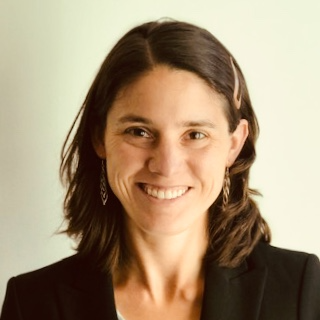
Kate Gaudry, PhD
Patent Attorney, Shareholder
Mughal Gaudry & Franklin PC
Kate Gaudry is a Patent Attorney and a Shareholder in Mughal Gaudry & Franklin PC. Kate Gaudry focuses her practice on data-driven, efficient and strategic patent prosecution. She particularly enjoys patent prosecution relating to artificial intelligence and/or computational-biology technologies. Kate believes that empirical research and community involvement are important to helping her clients and the patent community. She has authored over seventy publications and is an international speaker who shares results of generally applicable analyses, and her work was also pivotal in the shutting down of the USPTO’s SAWS program, which secretly subjected select patent applications to increased examination scrutiny.
Kate also is the founder and CEO of IP Prism, which hosts an end-to-end patent marketplace. In the IP Prism Patent Marketplace, the total time commitment for a user to buy a patent or sell a patent is just minutes.
Kate holds a J.D. from Harvard Law, a Ph.D. in computational neurobiology from UCSD, and a B.S. in Physics from Fort Hays State University.

Recent Articles by Kate Gaudry, PhD
Case law has defined prosecution laches as an affirmative defense against an infringement assertion. Specifically, the case law indicates a patent that is being asserted is unenforceable when the patentee caused an unreasonable and unexplained delay in prosecution of the patent. Symbol Tech v Lemelson Medical, No. 04-1451 (Fed. Cir. 2005). There is relatively little case law on the specifics of laches. However, in 2021, the Federal Circuit said: “we now hold that, in the context of a § 145 action, the PTO must generally prove intervening rights to establish prejudice, but an unreasonable and unexplained prosecution delay of six years or more raises a presumption of prejudice”. Gil Hyatt v. Hirshfeld (Fed. Cir. 2021). What does this – or might this – mean beyond the Hyatt case?
Typically, patent examiners are the prominent decision-makers controlling whether patent applications are allowed. However, Applicants have the power to change who controls these decisions. For example, each Examiner’s Answer must be approved by a supervisory examiner, so filing an Appeal Brief results in the supervisory examiner reviewing the rejections at hand, the appellant’s arguments, and the examiner’s responses to the appellant’s arguments. (If the supervisory examiner agrees with the appellant, then the application is either allowed or prosecution is reopened with one or more new rejections). So long as prosecution is not reopened, paying the Forwarding Fee subsequent to receiving the Examiner’s Answer results in jurisdiction shifting to the Patent Trial and Appeal Board (PTAB).

![[IPWatchdog Logo]](https://ipwatchdog.com/wp-content/themes/IPWatchdog%20-%202023/assets/images/temp/logo-small@2x.png)